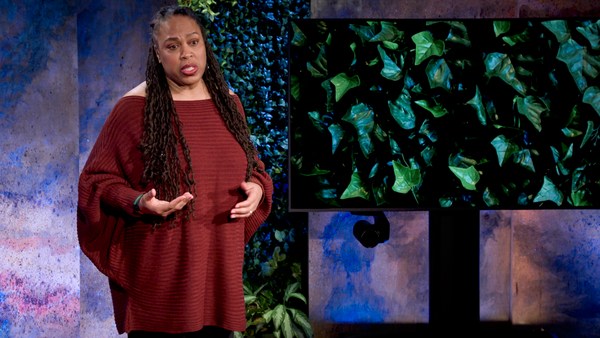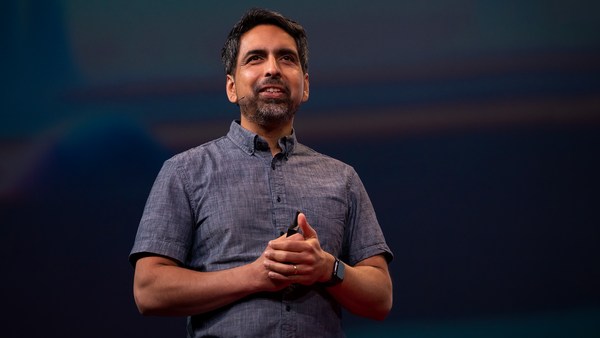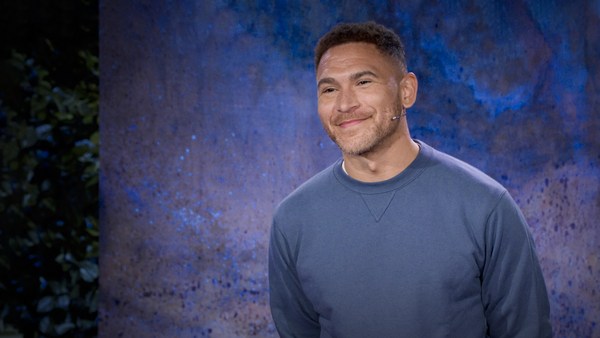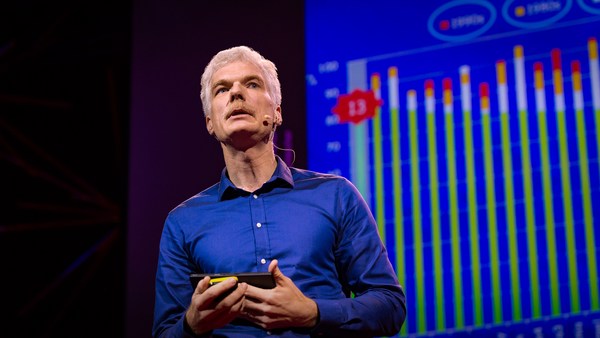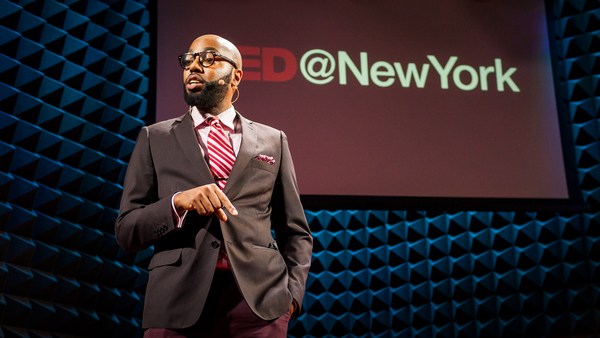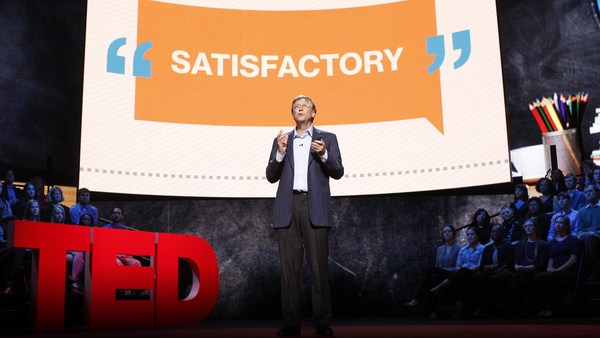This is a story about failure, my failure. And though the story has some kind of a happy ending, it's not your typical story where failure is a stepping stone to success.
It almost feels like failure is celebrated a lot these days. For instance, you hear slogans like "Fail forward, fail better, fail faster." And to be honest, these slogans drive me crazy. I mean, who wants to fail? Failure is not fun. And I would know because, you know, I'm sort of a poster child for failure. In fact, when one of my friends was writing a book about the topic, he reached out to me to write a chapter for his book.
But I'm also an educational designer, so I see failure in terms of systems and values. That failure is often a misalignment of values or bad design.
But I'm getting ahead of myself. Let me take you back to this point of my failure. So I want to take you back to my undergraduate days, my freshman year in engineering. I'm sitting in a physics class. I'm looking forward to learning. And in my notes I'm writing little limericks and poems about quantum states. That tells you something about who I was when I was that age. I loved physics and math, but I also loved art and literature and poetry and film. And I was excited and engaged to be in this engineering school.
Sadly, that was not the case. Sadly, those next four years, were possibly the worst four years of my life. Creativity and imagination was not encouraged. All we had was lectures upon lectures and tests and tests and tests. There was no scope for understanding. There was no space for having fun with the ideas. And these poems I was writing, they were, I'm sure, not great poetry, but they were meaningful to me. They were a way for me to explore and play with ideas, something that was squelched very early on.
And so this went on for four years, and I finally graduated. But I never genuinely became an engineer. I felt I was worthless, that I had failed. And what was sad was it was not a one-shot failure. It was every day, every month, semester after semester for four long years. And at this point, I saw a poster for a program in visual communications, and on a whim I decided to apply. Clearly, I was not going to be an engineer or a scientist, so maybe, maybe I could make educational film because I had grown up inspired by people like Carl Sagan and Jacob Bronowski. Long story short, I got into the program, and almost overnight my life changed. The system and structure and culture of the institution were very different. Creativity was encouraged. Flexibility and playing with ideas was supported. So even these things that I -- these haphazard things that I had been interested in, dabbling with art and science and poetry, somehow were meaningful all of a sudden. And it was also there that I was introduced to the idea of design, something I didn't know much about, but I felt very much at home in.
For four years in engineering, I had never felt that I had become an engineer. I had never felt like I belonged. But somehow this design seemed to give me a purpose and meaning. And what was amazing was how quick that change was. You know, in May of that year, I was feeling worthless, as if I was a failure. And by September of that same year, I had found a purpose. I had found a community. I had found a field that I could live within.
So even today, I call myself an educational designer. And what that made me realize is that my success or failure depended on a variety of systems and values that were often hidden from me. And this lens of design then allowed me at look at the world as something that had been made up. And that made me question what are the other things that we have made up.
Well, one of the biggest things we have made up is this idea of school. There is nothing natural about schools and universities. You know, there's nothing natural about credit hours and multiple choice exams and so on. But underlying them are certain key values about what is worth learning and what is not.
So this has led me to the work that I do today. To design learner-centered, just and equitable systems that question these assumptions that we have made about how learning should and can happen.
Now, how does that work? So let me give you a story. A few years back, a local school district reached out to us to help them design a school for the future. Now that's a tall order. What does that even mean? How did we go about doing it? Well, first we created a design team: an eclectic collection of teachers, administrators, parents, members of the community. And then we set out to listen. So we talked to the chambers of commerce. We created focus groups. We talked to parent groups. And most importantly, all through this, we kept asking ourselves: Who is at the table, and who is not? And how could we bring those who were not into the conversation?
For instance, one group that we never talk to or very rarely talk to are children, which is very strange given that they are the ones who are going to actually be in these schools. So we talked to kids, lots of them. We in fact followed them for a day. You know, sitting in their classes, listening to lectures, doing worksheets, eating cafeteria food and really enjoying the joy of recess. And while we were doing this and listening, we kept asking ourselves questions. What were we seeing? What does this mean? And we began to question assumptions. Like why are things a certain way? How might we create a school that actually connects with the community? How might we think of technology in ways that allow for expression and creativity? How might we create a school which is driven by the impulses of the learner? How might we create a school where we break the "one teacher, one classroom" model?
And in these conversations we developed a set of design principles, a set of values that would guide our discussions and our design. These were things that as a community, we believed in. And it was at this point in time where things seemed to go a little slow, where we had so many possibilities, but yet they seemed like very few. And we wondered what the next step forward would be. And there were all kinds of the usual hassles of internet failures and scheduling problems.
But then chance happened. We learned about this building, which was somewhat unused in the school district that they said we could play with, and suddenly the whole design team was energized. And if there's a lesson here, it is that you need to be prepared. And if an opportunity comes your way, you grab it with both hands and don't let go.
And that's exactly what we did. All the work we had done with the focus groups and the design principles and so on came together in this school and over two years of work later, this school exists today. It is a school that reflects the values of the community. It's a school that's very different from the ones that you see around you. We had to break down, both literally and figuratively, a whole bunch of walls to create this space where 100-plus kids would learn and work together. It is a space where they're surrounded by an array of responsible adults who work in teams, working in small groups and large, to meet the needs of these learners. It is a school which is open to the community, both in its demographics, as well as allowing parents and community members to go in and out as and when needed. This is truly a special place. And that doesn’t mean that we have figured everything out. But I’m proud to say that that school is expanded. It went in the next year to another studio space, and then now it goes all the way from K through eight. And for my team, this is truly one of our greatest successes.
To circle back to the beginning. You know, one could argue that it was that failure that led to this success, but I think that would be missing the point. It would be missing the point because it ignores the pain and hurt that failure causes. It ignores the agony that I went through for four long years. At that point, when I graduated from my undergraduate degree, I felt I had failed, I did not blame the system. But now, when I look at it, I realize maybe it was a system that had failed me. A system that fails a lot of our children.
Focusing on the individual prevents us from looking deeper. It prevents us from questioning the systems that led to the failure. It prevents us from questioning the values that underlie these systems. We can and must do better. I think our children deserve better. That 18-year-old me writing poetry in physics class deserved better.
Thank you.
